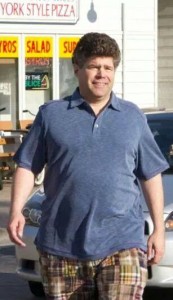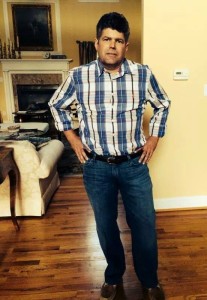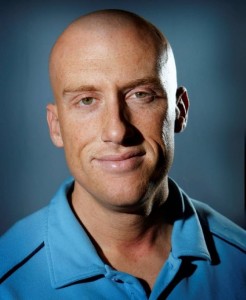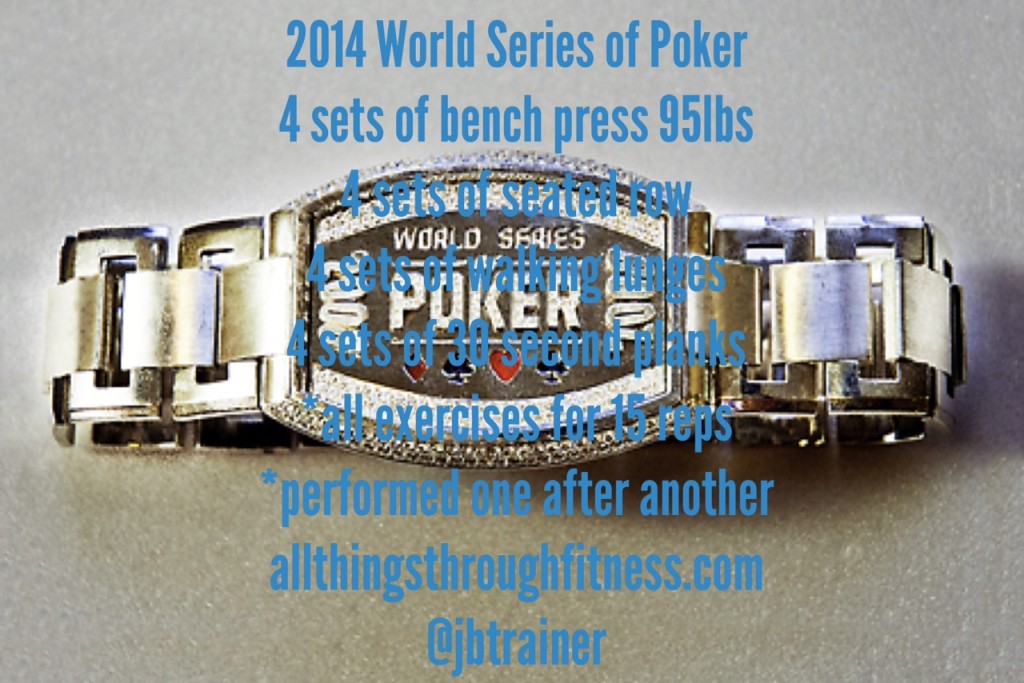By Josh Bowen, on Thu Jul 17, 2014 at 8:30 AM ET
The hardest thing to do in life is to be yourself when everything around you wants you to be someone else. I struggle with the status quo. I struggle with being like other people. I have to be me. Like it or not. Arnold was a polarizing figure. A bodybuilder, with perhaps the best physique ever, turned mega movie star, turned Governor of California turned back to move star. He defines success, perhaps when success shouldn’t have been attained. A guy with a lisp from Austria, new to the United States takes the world by storm.
Because of the following 6 rules that we can all live by…

1. Trust yourself
At the end of the day we can only rely on ourselves. No one can care about our success or failure more than us. We must trust ourselves and go with our gut feelings. Continue to strive for personal greatness and always remember nothing is fatal or final.
2. Break the rules…
To hell with the rules. Your not suppose to do this or do that. Screw them. We don’t need them. We set the rules. We are the measuring sticks by which all are judged and we didn’t get there by playing it easy and playing by the rules. Break them and break them often.
3. Never be afraid to fail
You will fail. I will fail. However, we must not be afraid to fail because where there is failure there is success. The only way to succeed is to fail. If you have never failed you have never tried. Push the envelope of what you think is possible. You will learn a lot about what it takes to succeed.
4. Don’t listen to the naysayers
Nothing is impossible. With a strategic game plan and a hellacious work ethic, anything is possible. Don’t listen to people who say you can’t do it. They are only feeding your drive to do it. Haters will hate, do not listen to them. Follow your heart an your gut.
5. Work your butt off
Hard work is a given. Nothing will be given to you. You want it bad enough you will go get it. Work your ass off every day with your goals in mind. When you take off remember there is someone out there working towards what you want. Keep pushing and never let up.
6. Give back
Pay it forward. Give back to what has given to you. When you succeed teach others your ways. Mentor young minds to stimulate greatness in them. Leave a legacy no one can match. Be the measuring stick.
All things are possible through fitness. The above list, if followed, will produce success in any field or endeavor. This is short, simple and easily applied. Go toward your greatness.
By John Y. Brown III, on Wed Jul 16, 2014 at 12:00 PM ET
  So, I got a haircut. So, I got a haircut.
And I lost 23 lbs.
(Jan 2nd 2014 vs July 2nd 2014)
I’m calling it the “Facebook Diet” because a key motivator is regular Facebook updates on my progress.
===
Out with the old –and too big.
21 months ago I bought a pair of jeans that are 34w as an incentive to fit into them 2 months later.
21 months –and 21 lbs– later I fit into them. Not what I would call “a comfortable fit” but I am wearing them anyway.
And got rid of all my 38w pants today along with a few other (now) oversized clothes.
 Off to Evolve consignment store and Goodwill. Off to Evolve consignment store and Goodwill.
And 19 months late is still better than never. Or even 20 months later.
By John Y. Brown III, on Fri Jul 11, 2014 at 12:00 PM ET  My two cents. My two cents.
For 20-somethings there are plenty of challenges –finishing education, entry level jobs, marriage, first home, starting family and so on. These are just some of the major life challenges often stared down in the 20s decade.
But the life challenge during this period that is perhaps most important of all is what I call “finding your people.”
By that I mean finding out where you fit and can be you–be your best self and thrive most naturally. Not the people our parents believe or think we should fit with. And frequently not the people we ourselves in our 20s believe or think we want to fit with.
Sometimes we find this group in the course of our education or work or just stumble onto them. Sometimes it’s the last group we think of looking to.
Sometimes they find us.
And, ironically, it is often the group we find ourselves among while we rest –between looking for groups we are trying to fit ourselves into. In this instance we can stop looking and just pull up a chair and sit down.
We are home.
By Josh Bowen, on Thu Jul 10, 2014 at 8:30 AM ET To be yourself in a world that is constantly trying to make you something else, is the greatest accomplishment.”- Ralph Waldo Emerson
 Recently I was reading an article I found on Facebook called “5 Regrets of Dying,” and the first regret was “I wish I’d had the courage to live a life true to myself, not the life others expected of me.” This got me thinking about life in general and how I see people who live their lives for someone else and not for themselves. Recently I was reading an article I found on Facebook called “5 Regrets of Dying,” and the first regret was “I wish I’d had the courage to live a life true to myself, not the life others expected of me.” This got me thinking about life in general and how I see people who live their lives for someone else and not for themselves.
I can be accused, justifiably so, for being a workaholic and someone who is passionate and borderline obsessed with his work and craft. But I will say for all that I sacrifice; personal time, vacations, time with friends and family, I do my work, not because I have to but because I want too. I lead this life the way I want. Everything is my choice. Some people will love me and some won’t. That is the nature of life.
So putting fitness aside, I thought I would write about life in general. And pose the question to everyone; “Are you living to die or dying to live?” Here are five steps to separate yourself from everyone else and be who you are suppose to be:
1. Radical Self-Responsibility
We have become people who always point the finger at others. As to say it is always someone else’s fault or problem why we are where we are. At the end of the day, the responsibility falls on our shoulders. If you didn’t workout today, that is your fault. Manage your time better. In order to get out of the usual and become someone of distinct characteristics, we must take full responsibility for everything.
2. Stop Caring What People Think
Right or wrong we all care what people think of us…to a degree. I care what my family thinks of me. However, I do not let them sway me one bit. Some people will love you, others will not, stop caring what those who only want the worst for you, think. “Wolves do not fret over the onions of sheep.” Are you a wolf or a sheep? You pick?
3. Stop Being So Superficial
At the end of the day, we will all die and the way we looked or the things we had will not matter. What will matter most is the impact we had on the people we leave behind. Treat your body right but don’t obsess. Have nice things but realize they are only just that, things.
4. State Your Opinion
This is a difficult one. In today’s landscape, having an opinion can be looked at as a hindrance more than a benefit. However, I was always taught to stand up for your beliefs and to give your opinion if asked. To this day I do not shy from stating my opinion no matter how unpopular it is.
5. Realize Life Will be Over Soon
To quote a phrase, “I’m not here for a long time, I’m here for a good time.” None of us are here for a long time. We are given a certain amount of time on this earth and we must make the most of it. If you want to try something, go try it. You want to start your own business, go start it. Fear absolutely nothing and careless what anyone has to say about it. Leave a legacy someone could be proud of. It will make a vast difference in the world, trust me.
We were all meant to be extra-ordinary in our lives. But you can’t do this from your desk or your couch at home. You must get off your ass and change your mindset on being you, the real you. Show people who you are. It will make a world of difference.
By Beth Gamulka, on Mon Jul 7, 2014 at 1:30 PM ET  Last month I had the pleasure of reconnecting with many classmates at the same reunion that Jonathan Miller enjoyed. I went to a panel discussion about health care reform. As a physician who is interested in health policy, I was eager to hear what the panelists had to say. My former classmates were now health services researchers, physicians, and health policy experts. Other audience members were now health insurance executives, policy makers, and health care users with diverse political affiliations. It didn’t take long before I felt as if I had mistakenly walked into a foreign language film without English subtitles. While Canadians may spell and pronounce words differently, understanding American English is usually not a hardship. The language used in public discourse on the Affordable Care Act, however, simply does not resonate with Canadians. Last month I had the pleasure of reconnecting with many classmates at the same reunion that Jonathan Miller enjoyed. I went to a panel discussion about health care reform. As a physician who is interested in health policy, I was eager to hear what the panelists had to say. My former classmates were now health services researchers, physicians, and health policy experts. Other audience members were now health insurance executives, policy makers, and health care users with diverse political affiliations. It didn’t take long before I felt as if I had mistakenly walked into a foreign language film without English subtitles. While Canadians may spell and pronounce words differently, understanding American English is usually not a hardship. The language used in public discourse on the Affordable Care Act, however, simply does not resonate with Canadians.
While I have lived in the US, I have never practiced medicine there, nor have I ever been a consistent user of US health care services (unless you count sporadic interactions with the University Health Service in college– but let’s not). I have spent over 20 years as a health care provider and a lifetime as a health care user in Canada. I am not a comparative expert on US vs. Canadian health care models. I have simply experienced the Canadian system both as a physician and a patient/ advocate.
There are three key components of the Canadian universal health care system that are integral to its success and might illustrate the true differences between citizens of both countries (aside from the Canadian propensity to be polite and apologetic). The first is the way in which Canadians view their right to health care. It is an expectation but not one that is felt to necessarily be an immediate one. Canadians are very patient people (unless they are watching an NHL playoff game on TV and the cable goes out). I think it is similar to garbage collection. I pay taxes to the city of Toronto and in return I get my garbage collected on a regular basis. While I might want the garbage collectors to come every day, instead I have to wait patiently to have it removed according to the schedule.
What if there is a chemical spill or a major hazard that would require removal of toxic waste urgently? There is a way to initiate an emergency system to get that garbage removed. Access to health care is seen in much the same way.
Another component of Canadian Medicare that supports its success is the belief of most Canadians that every citizen has the right to access the system. While there may be geographic variations with respect to the services that are offered, those differences are not unique to this country. It is similar to public primary and secondary education. This belief is part of the fabric of the country.
The last characteristic of Canadian Medicare might sound odd. I actually believe that we have less government and third-party intervention in the doctor-patient relationship in Canada when compared to the US. While government involvement in instituting Obamacare has met with resistance from insurance companies and individuals on many levels because of the fear of losing free choice, the recent Supreme Court Hobby Lobby decision suggests that there is a long road ahead. As a physician, I see patients and bill the province’s Ministry of Health, who then pays me for the services that I have provided. Neither the patient nor the physician has to get approval from a third party for the care that is needed. The role of health insurance companies is for extended benefits only, such as dental and psychological services, medical device costs, medication costs, and use of private hospital rooms. While there are government controls on overall costs and resource allocation, there are certainly no government or third parties interfering with moral decision-making for the patient.
Canada has usually been a little behind the times when compared to the US. In a reference to the ‘80s fashions worn by Robin Sparkles in 1994 in an episode of How I Met Your Mother, Cobie Smulders’ character says, “The ‘80s didn’t come to Canada ‘til like ’93.” While that may be the case for access to stores like Target (which finally opened in Canada in 2013), access to health care in Canada is the exception. While uninsured rates for those without health insurance are followed closely south of the border, and are thankfully dropping, they are negligible in Canada and have been for 50 years.
In 2004, the Canadian Broadcasting Corporation (CBC) launched a TV series called The Greatest Canadian. It was a reality show/documentary, of sorts, that encouraged viewers across the nation to nominate the greatest Canadian. The winner was not Mike Myers, Wayne Gretzky, Alexander Graham Bell, William Shatner or Jim Carrey. It was Tommy Douglas, the politician who is rightfully considered the father of universal health care in Canada. This year, the federal government ran an on-line survey asking Canadians which of the country’s accomplishments “make you most proud to be a Canadian?” The answer, not surprisingly, was Medicare. So this Canada Day (yes, July 1 is a real holiday here with beer and fireworks and everything), I will pick up a bottle of Molson Canadian and toast Mr.Douglas.
By John Y. Brown III, on Mon Jul 7, 2014 at 12:00 PM ET  Kudos to Laura Ungar of the Courier-Journal for her clear-eyed, bold and much needed investigative piece on Suboxone. It isn’t critical as much as asks (and attempts to answer) sobering questions after the much heralded anti-addiction drug has now had time to demonstrate if it has been as effective as it’s early champions heralded it would be.
Four years ago, I agreed to disagree with several doctors –in a discussion that turned contentious at times– that Suboxone, alone, was all many addicts needed to overcome their drug addiction.
The doctors, well-meaning but short sighted, in my view, insisted on the above position and dismissed my skepticism because I wasn’t a trained medical expert.
That is a tough position to be in if you are trying to convince someone of your opinion who is a “trained medical expert.” So I backed away without backing down entirely.
I don’t have medical training and they each did. They knew and cited studies and treatment outcome data. All I had is that in my experience people, including doctors, who felt supremely confident in themselves in successfully treating the deeply mysterious and heart wrenching disease of addiction, eventually had their over-confidence displaced by humility.
I wish that weren’t the case and that there were a kind of “magic pill” to fix an addiction to other kinds of “magic pills.” But it’s not that easy. As I said then, and still believe, some medications may serve the equivalent role of “water wings” to someone trying to beat addiction–help them float while they are trying to learn to swim. But water wings, by themselves, are only a tool, and a limited one at that. Especially if you are trying to learn to swim and they are the only thing between you and drowning.
By John Y. Brown III, on Sat Jul 5, 2014 at 12:00 PM ET  On Saturday mornings I attend a meditation group….and have for several years. On Saturday mornings I attend a meditation group….and have for several years.
I try not to get competitive but this morning I am really feeling it…and am gonna out meditate everyone in the room.
I may even trash talk a little.
“Don’t bring that weak meditation posture in here, yo!!” Or when the timer goes off ending the session shout, “Bam! That’s what I’m talking about!!”
By Josh Bowen, on Sat Jul 5, 2014 at 10:00 AM ET Globally-recognized personal trainer Josh Bowen will this week be providing intensive physical workout routines for The RP as he prepares to compete in the World Series of Poker.
This morning’s workout is below.
Visit Josh’s web site here and sign up for his newsletter here.

By Will Meyerhofer, on Thu Jul 3, 2014 at 1:30 PM ET “I never thought I’d end up working as a contract attorney doing doc review in a windowless basement,” my client bemoaned. “But then I read that piece about the lawyer who’s working as a clerk at WalMart. At least I’ve still got it over him in terms of job prestige.”
 Well, you know how obsessed lawyers are with job prestige. Well, you know how obsessed lawyers are with job prestige.
There’s a phrase, “The Downward Drift,” that crops up in discussions of serious mental health diagnoses like schizophrenia, and/or chronic substance abuse. The idea is that you are afflicted with serious mental illness, or become addicted to a harmful substance, which in turn leads to a slow, inevitable slide downward in terms of social class. Before long, the wealthy, Upper East Side business executive suffering from schizophrenia and/or severe alcoholism finds himself jobless, friendless and eventually even homeless, sleeping in shelters and begging for change.
Weirdly, the same phenomenon – the Downward Drift – affects people who acquire Juris Doctor degrees. It sort of makes sense, since – at least nowadays, with people like me bellowing jeremiads on every street corner, it would be evidence of utter madness – textbook psychosis, perhaps – for anyone to head in the direction of law school, at least unless that law school is one of the top three in the country and someone else is footing the bill. But try to persuade a kid with a high LSAT score not to apply to law school – it’s nearly as tough as persuading a kid who’s gotten into a “top-500” (or whatever) law school into not attending (especially if he’s “won” one of those risible $20,000 so-called “scholarships” they hand out like pushers showering crack vials on newbie users.) If that task sounds Herculean (or Sisyphean), try talking a kid who’s blown $80,000 on his first year of law school out of “finishing up” the other two (useless) years – even if he’s hated every moment of the experience so far. This is where the parallel with addiction comes in because I guarantee you it’s no easier than convincing a chronic alcoholic that ten martinis is really enough. Even my own much-vaunted powers of persuasion come up short at that juncture. Because it’s impossible. An addict will keep drinking and drugging until he passes out face down in a puddle on the sidewalk. And a law student will blow that additional $160,000 to finish those two more pointless years. It’s a sure thing – just like zombies like eating flesh, the sun likes rising in the morning and Pat Robertson likes blaming bad weather on the homosexual agenda.
So how does the “Downward Drift” work, at least for lawyers?
Read the rest of…
Will Meyerhofer: The Downward Drift
By Josh Bowen, on Thu Jul 3, 2014 at 10:00 AM ET Globally-recognized personal trainer Josh Bowen will this week be providing intensive physical workout routines for The RP as he prepares to compete in the World Series of Poker.
This morning’s workout is below.
Visit Josh’s web site here and sign up for his newsletter here.

|
The Recovering Politician Bookstore
|

















